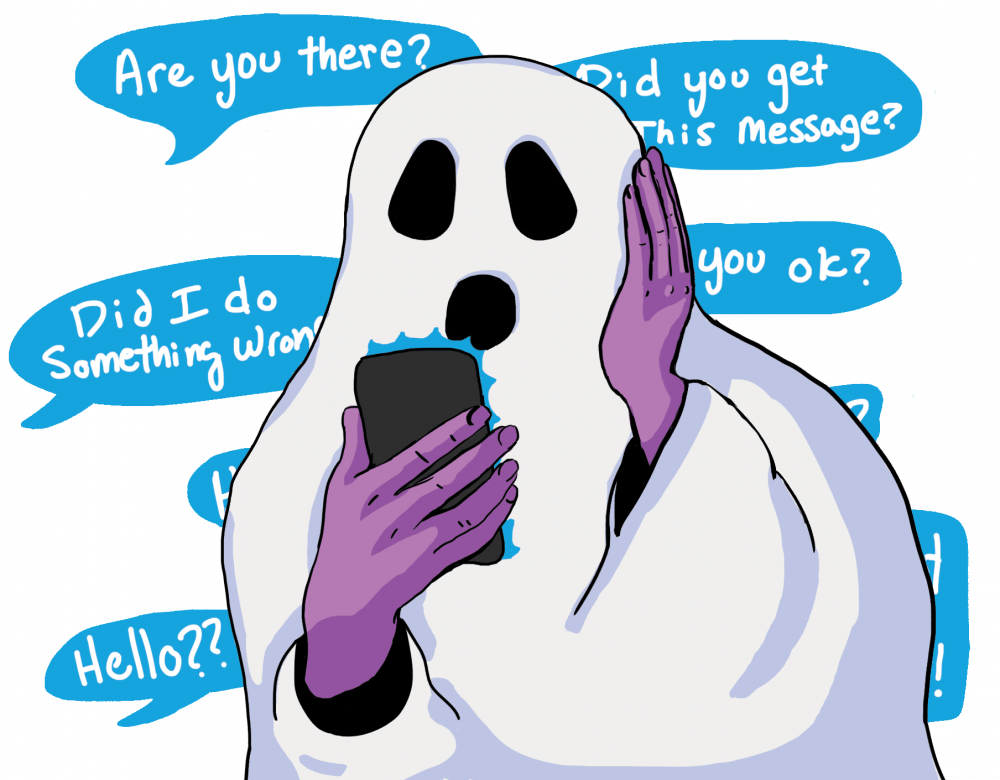Three months ago, junior Jacky Wang’s phone rang. Wang answered, not knowing the person on the line was someone he had not planned to see again. Wang panicked, hung up and blocked the number. Five minutes later, the persistent caller attempted again using a different phone number. Wang’s response was the same. Months later, the rejected date contacted Wang on Facebook.
This is all the fallout of ghosting a potential partner.
Ghosting means to end a relationship or communication with a potential romantic partner with no explanation and involves a total disappearing act.
The trend to vanish during casual dating or even within a long-term relationship is not inherently gendered, but the level of conventional attractiveness might play a role in someone’s likelihood to ghost others due to a perceived increase in options, according to University of Alabama professor and researcher Dr. Leah LeFebvre.
LeFebvre researches romantic relationships, particularly focusing on ghosting and has published reports such as "Ghosting in Emerging Adults’ Romantic Relationships: The Digital Dissolution Disappearance Strategy."
LeFebvre's observations about the impact of one's appeal matches Wang’s experiences. When Wang first began dating in college as an 18-year-old, he felt he had fewer options. When his first ghosting occurred, he said he felt rejected. Upon sending multiple texts to the man he had been spending romantic time with and receiving no answer, Wang said he felt like he did something wrong or wasn’t good enough. Since his first year, Wang said he lost weight and that he now feels ghosting is just something most people do, including him.
“I didn’t ghost on people because, I guess, it almost felt like my options were more limited versus now, if I don’t feel anything with a guy, I don’t find myself invested enough to try to talk it out,” Wang said. “It’s just like, 'I hope you get the hint,' and I’m just going to move on from there.”
LeFebvre said despite the fact that some say ghosting has existed for a long time as a cease in communication, ghosting is different now because of the constant access people have with others through phones and social media. Even with the negative effects ghosting can have on a person, those who have been ghosted are still likely to ghost others, she said.
“It shouldn’t discount the experience that’s actually taking place,” LeFebvre said. “Some other things we found are that it was pretty painful for most people who experienced it, but funny enough, most people who experienced also did it. They say they don’t like it, yet they’re going to do it even after they had been ghosted. So, it doesn’t necessarily change any sort of sympathy or empathy for their future person and/or partner that they’re going to interact with.”



